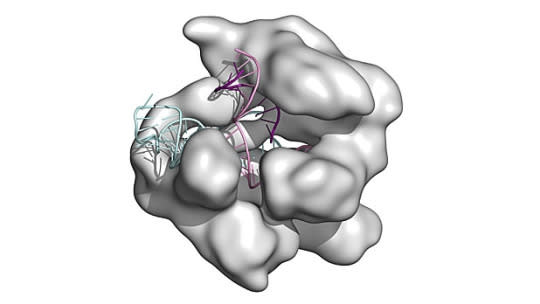What, Exactly, Is CRISPR?

(Photo Courtesy of Molekuul / Getty Images)
The technology to easily, quickly manipulate genes — and, for some, the beginning of a Gattaca-like dystopia — is here, and its name is CRISPR. So what, exactly, is this technology and why is it so controversial? Here’s your primer.
Several years ago, biologists discovered that bacteria in the body are able to defend themselves by cutting up pieces of DNA from invading viruses, storing them in the spaces in the bacteria’s own DNA and recognizing the viruses if they come back. Manipulation of this naturally occurring process, dubbed CRISPRs, or clustered regularly interspaced short palindromic repeats, has the potential to one day improve crops, cure cancer, prevent Alzheimer’s, and, some say, wreak havoc on the natural world.
Related: The Health Breakthroughs of 2015
The biochemist mainly credited with the discovery of the CRISPR/cas9 system (often referred to as simply CRISPR) is Jennifer Doudna, a professor of chemistry and molecular and cell biology at the University of California at Berkeley. She was among the nearly 500 scientists who met at the International Summit of Human Gene Editing in Washington, D.C., earlier this month, and one of those who expressed concern about using the science on human embryos and stem cells.
CRISPR appears to be a universal biological process — in other words, bacteria everywhere cut the DNA with a viral command — and is remarkably easier and cheaper than earlier forms of genome editing. Some worry that because of this, the zeal to create a genetically engineered elite super race might be difficult to contain. If we’re able to prevent a baby from ever getting Alzheimer’s with a little gene tinkering, why not ensure he or she also is tall or strong by removing any genetic material linked to puniness? A surge of designer babies into the gene pool would interfere with natural selection and could usher in renewed acceptance for eugenics, some fear.
Related: How to Shop for a Genetic Test
In a RadioLab radio show this past June, however, a guest pointed out that people once expressed similar fears that in vitro fertilization (IVF) was dangerous or unnatural yet is widely accepted today. And for now anyway, fears of a Frankenrace are premature. Researchers in China recently conducted controversial CRISPR experiments on human embryos that were essentially a bust. Of the 86 embryos they tested, only 28 were “successfully spliced," Nature reported, and of those, only a handful did what the scientists were shooting for.
But no one wants to exercise caution to such a degree that we postpone potentially life-saving scientific discoveries. Because it’s theoretically possible now for scientists to, for example, insert a protein able to grab cancer cells and attack any genetically based disease into someone, the disease-fighting implications of CRISPR are huge.
Related: Can Oral Sex Cause Cancer?
A group of scientists who attended the D.C. summit recommended the formation of an international body to create guidelines for ongoing research into human gene editing. Not a bad idea, considering that the possibility to manipulate he genes of human embryos to essentially do whatever we want is likely a mere 10 or 20 years away.
By Virginia Pelley
More from Men’s Journal:
11 Things You Probably Didn’t Know About Your Brain
